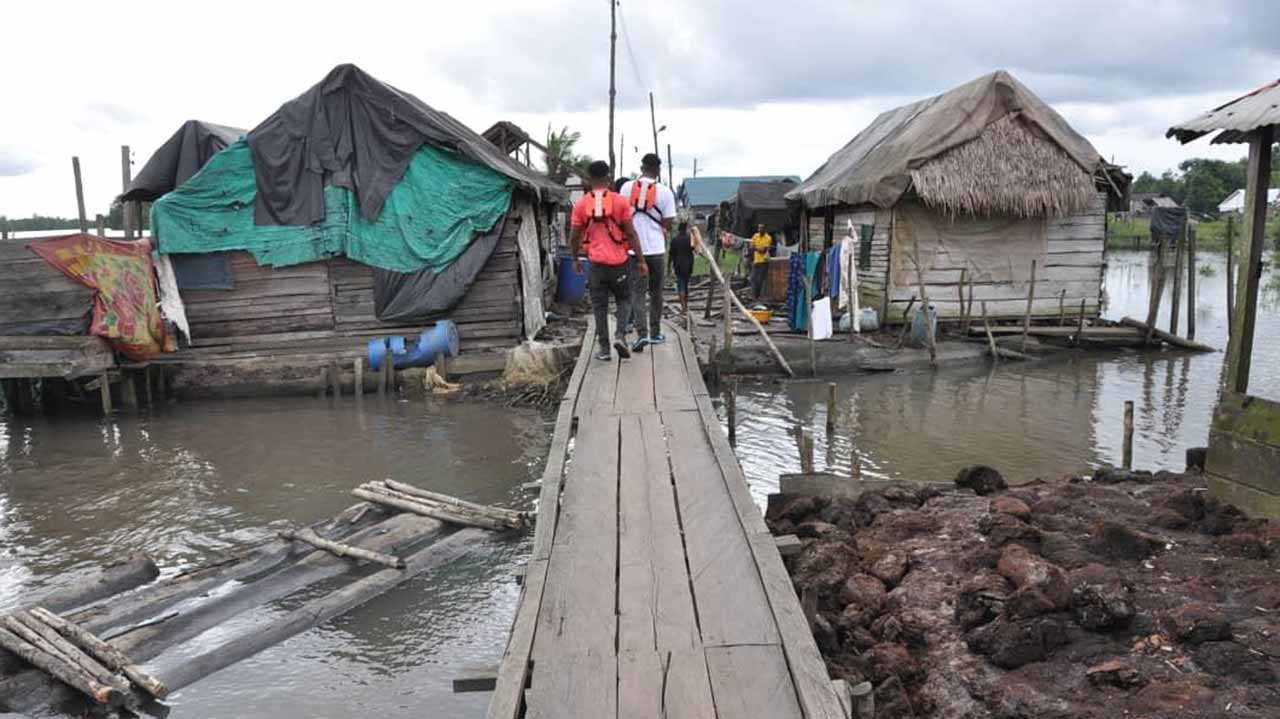
• Experts Worry Over Region’s Worsening Economic Indexes
• NNRC, Others Insist On New Strategies, Decry Corruption
• Current Model Shortchanging Women In Region – Group
• Communities Say Oil Firms Failing To Implement GMoUs, Urge Intervention
• CSOs Bemoan Poor Release Of Allocation, Elite Gang Up
There are glaring indications that the over N4t so far budgeted by the Federal Government, and funds contributed by oil companies, as well as other benefits meant to better the lives of about 20 million people of the Niger Delta have not been judiciously applied.
With allocation averaging N300b yearly, budget analysis showed that nothing less than N4t has been appropriated to Niger Delta Development Commission (NDDC) between 2011 and 2019. Even though statistics indicated that the funds were not fully released, most stakeholders maintain that the gap between the resources flowing into the region and the reality on ground were world apart.
The NDDC Act mandates oil companies to pay dues of about three percent of their yearly budgets to the commission notwithstanding the 13 percent derivative received by oil-producing states. Shell Petroleum Development Company of Nigeria (SPDC) and partners alone earlier said as much $2b (N0.7 trillion) has been remitted to the NDDC.
Indeed, the situation in the region calls for serious attention considering the fact that while development indicators are depressingly low in the country, the statistics in the region are worse.
For instance, while the average life expectancy in the country stands at 55 years, in the Niger Delta it’s 10 years lower, that is 45 years, a report by a non-governmental organisation (NGO), We The People, in partnership with the Nigerian Natural Resource Charter (NNRC) noted.
Similarly, while 67.1 percent of Nigerians are reportedly living in poverty, the report also noted that in the Niger Delta, 88 percent of rural dwellers are considered to be living in poverty.
Pursuant to the bid to transfer benefits of oil resources to the region, in 1960, the Federal Government came up with the Niger Delta Development Board, but later scrapped it without significant use. Niger Delta Basin Development Authority came up in 1970 alongside 10 other Basin Development Authorities, but remained ineffective.
A policy that sets aside 1.5 per cent of funds from the Federation Account was in place in 1981, but failed with a number of abandoned projects left behind.
Agitations from the region equally gave birth to the Oil Mineral Producing Areas Development, better known as (OMPADEC) in 1992, the 13 percent derivation formula and the NDDC in 2000, among others.
Only last week, President Muhammadu Buhari called for a probe of the finances of the NDDC from 2001, insisting that there were no results for the level of spending going into the region.
But the Executive Director, Civil Society Legislative Advocacy Centre (CISLAC), Auwal Ibrahim Musa, said little has been achieved from series of probes in the country, adding that reported cases of monumental financial mismanagement and corruption are hardly implemented.
“Despite various probes into failure by some International Oil Companies (IOCs) to fulfill their mandatory remittances to the NDDC, there has, however been no investigation of how the NDDC has spent the whopping allocations without substantially visible infrastructural or social development in the Niger Delta region,” he said.
For desired development in the Niger Delta region, Musa said sincere efforts must be made to ensure fact-finding, sanctions and implementation of recommendations from any probe.
Founder/Principal Partner at Nextier Advisory, Patrick Okigbo, who shares the view that the level of development in the Niger Delta was not commensurate with the funds so far allocated to the NDDC, added that an audit of the agency’s activities was highly recommended.
Head of Innovation, BudgIT, Abel Akeni on his part insisted that the lack of transparency and accountability in the sector remained a critical barrier to transfers of benefits to oil communities, especially as elites particularly, those from the region divert public resources into personal pockets.
Making reference to a number of NDDC chieftains, who are already on the EFCC’s watch list, Akeni decried the role played by the elite and middle class actors in shortchanging the region.
Head of We the People, Ken Henshaw noted that most projects in the region were at different levels of abandonment, adding that benefits of oil resources in the region has been used as settlement for a few politically exposed individuals.
The Convener, Women In Extractives (WIE), Faith Nwadishi said the current benefits transfer mechanism has seriously marginalised women in the region.
According to her, most of the scholarships given out in the region, as well as contracts were designed for men, even though women are more impacted by the challenges in the region.
On why interventions in the region have not achieved the desired results, Nwadishi said: “There have not been sanctions, proper community dialogue, or understanding of the differences across the communities in the region.”
Insisting that states and local governments in the region share in the blame, she noted that there was lack of coordination between the tiers of government, as well as the community.
Centre for Environment, Human Rights and Development’s Sam Kabari advised the government to plan measures that would make benefits of resources flow from the communities to the federal instead of the current approach.
To him, there was need for communities to own the resources in their domain and transfer the benefits up, noting that oil and gas communities needed to drive their own development.
Kabari also stated that the scope of the Environmental Impact Assessment must be expanded in the region, while disclosing that the current plan lacks strict monitoring mechanism.
And for Nigeria Extractive Industries and Transparency Initiative’s Garuba Dauda, remediation remained critical to addressing the issue.
“Government needs to go back and look at the scheme and study other countries that have done perfectly well in addressing issues surrounding the transfer of resources to local community,” he said.



